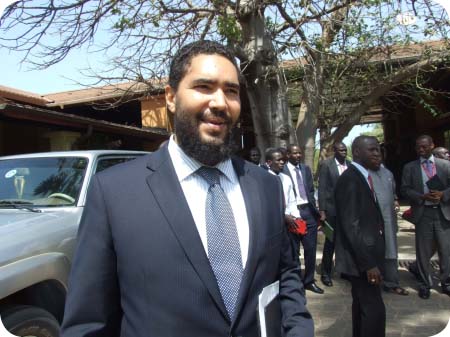
It is with much delight that I give remark at the opening ceremony of a workshop on the development of a national strategy for The Gambia to fight money laundering and terrorism financing.
I recognize the efforts of the Inter-governmental Action Against Money Laundering in West Africa, which is a specialized ECOWAS institution established to strengthen capacity of ECOWAS member states to combat money laundering and terrorism financing in the region.
We are aware of the global and regional call to fight money laundering and terrorism financing and the proliferation of weapons of mass destruction.
Certainly, The Gambia has not been left behind in taking appropriate legislative and administrative actions to curb the menace of money laundering and terrorism financing.
It is important to note that Money Laundering and Terrorism Financing are new forms of crimes. It was barely twenty years ago in 1988, when the United Nations Convention against illicit traffic in narcotic drugs and psychotropic substances was instituted as a global treaty to fight illicit drugs. After that was the UN Convention for the Suppression of the International Financing of Terrorism (New York Convention, 1999), The UN Convention against Transnational Organized Crimes (Palermo Convention, 2000) and the UN Convention against Corruption (Merida Convention, 2003).
These key international treaties and other similar treaties show the international commitments of governments across the world to fight money laundering and terrorism financing. There are also series of UN Security Council Resolutions such as Resolution 1267 and 1373 on terrorism and terrorism financing.
We must not lose sight that the Financial Action Task Force (FAFT), though a European supra-national institution, has been the organization which first set standards in about 1990 by way of recommendations.
The first sets of 40 Recommendations were specifically on money laundering and later the 9 Special Recommendations on Terrorism Financing.
After review of the 40, plus 9 Recommendations, in February 2012, the Financial Action Task Force introduced the new 40 Recommendations on Money Laundering and Terrorism.
These Recommendations are the minimum requirements which countries are required to implement so as to protect their financial systems and national economies from being abused by criminals to advance their course. These Recommendations have been the basis of assessing countries on their preparedness to fight money laundering and terrorism financing.
We are aware of the efforts of heads of states and governments in West Africa to help states and countries to adopt appropriate domestic measures in line with international standards, treaties, protocols and agreements and best practices to fight economic and financial crimes. This certainly, is manifested in the establishment of the Intergovernmental Action Group Against Money Laundering in West Africa in 2000.
The Gambia has taken giant steps to put in place legal and institutional and other measures in place to fight money laundering and terrorism financing in the country.
It is important to note that in 2002, The Gambia enacted the Anti-Terrorism Act. This was followed by the enactment of the Money Laundering Act 2003.
Cognizant of the deficiencies of The Gambia’s Anti-Money Laundering and Combating of Terrorism Financing Regime as highlighted in the GIABA’s Mutual Evaluation Report 2008; the authorities in The Gambia reviewed the Money Laundering Act 2003 and enacted the Anti-Money Laundering and Combating of Terrorism Financing Act 2012. This is one of the most important legislation to combat money laundering and terrorism financing.
It should be noted that The Gambia has in place a comprehensive penal code and other laws which have direct bearing on tackling money laundering and terrorism financing. The predicate crimes of money laundering have been criminalized in the criminal code and other legislations.
The Gambia will continue to assess its laws and take appropriate measures in putting in place a strong legal regime to appropriately fight money laundering, terrorism financing and all predicate crimes.
I thank GIABA for providing this technical assistance for The Gambia. We look forward to more capacity building from GIABA and other institutions with similar interest to build capacity of judges, prosecutors and other law enforcement agents.
Thank you for your kind attention.
Read Other Articles In Article (Archive)
Alhusen Trawally Wins Busumbala Karate Championship
Apr 2, 2009, 4:51 AM
GMC to boycott Local Govt. election
Jan 8, 2013, 10:22 AM


